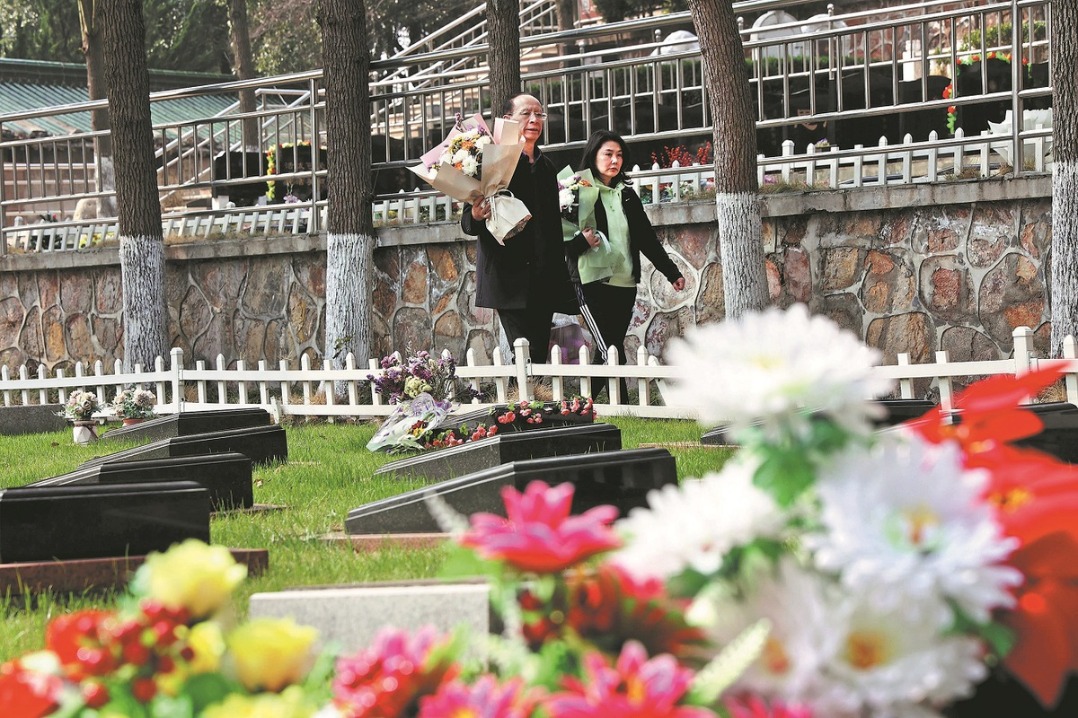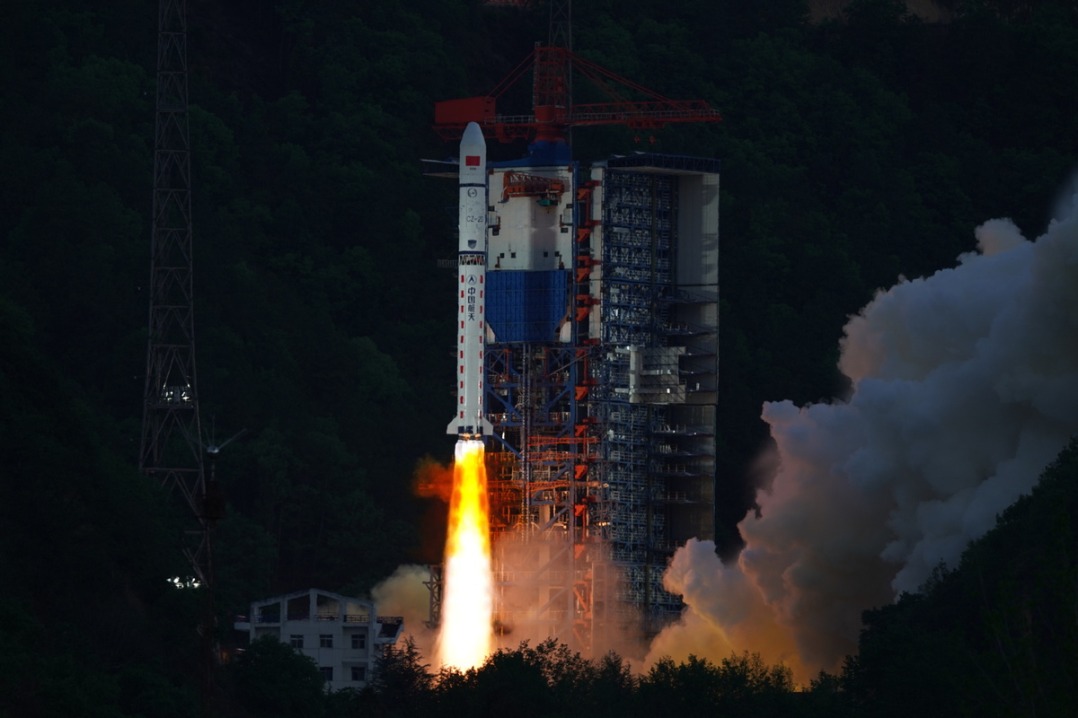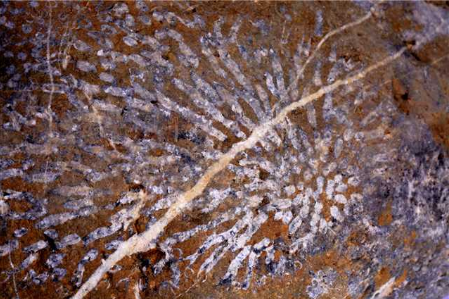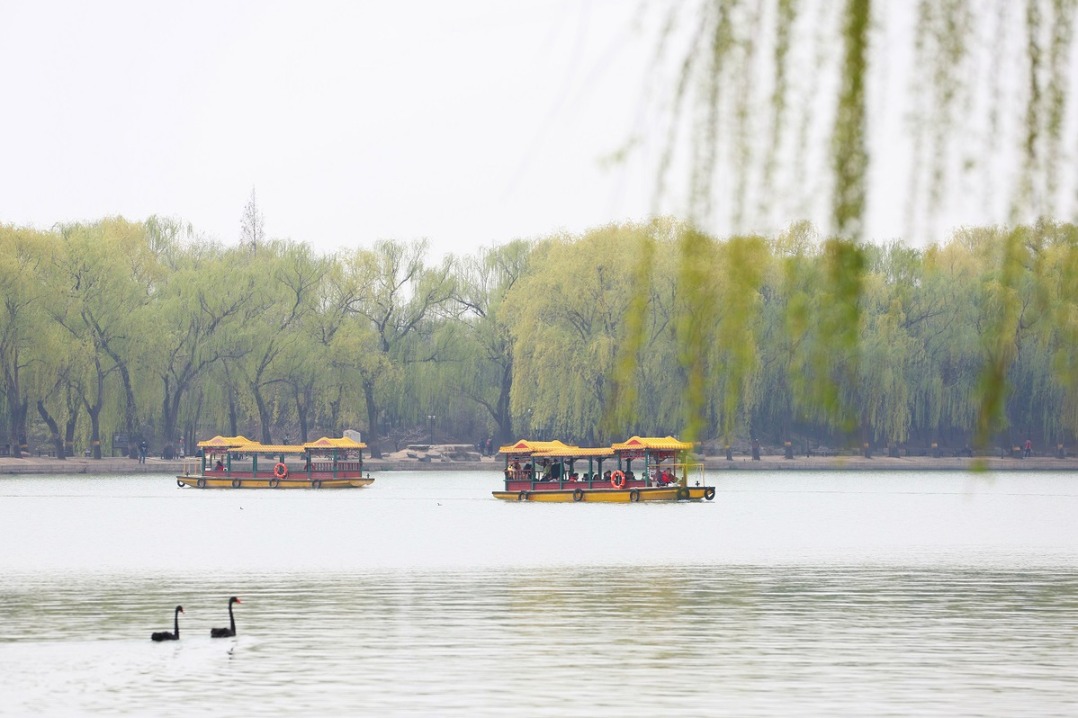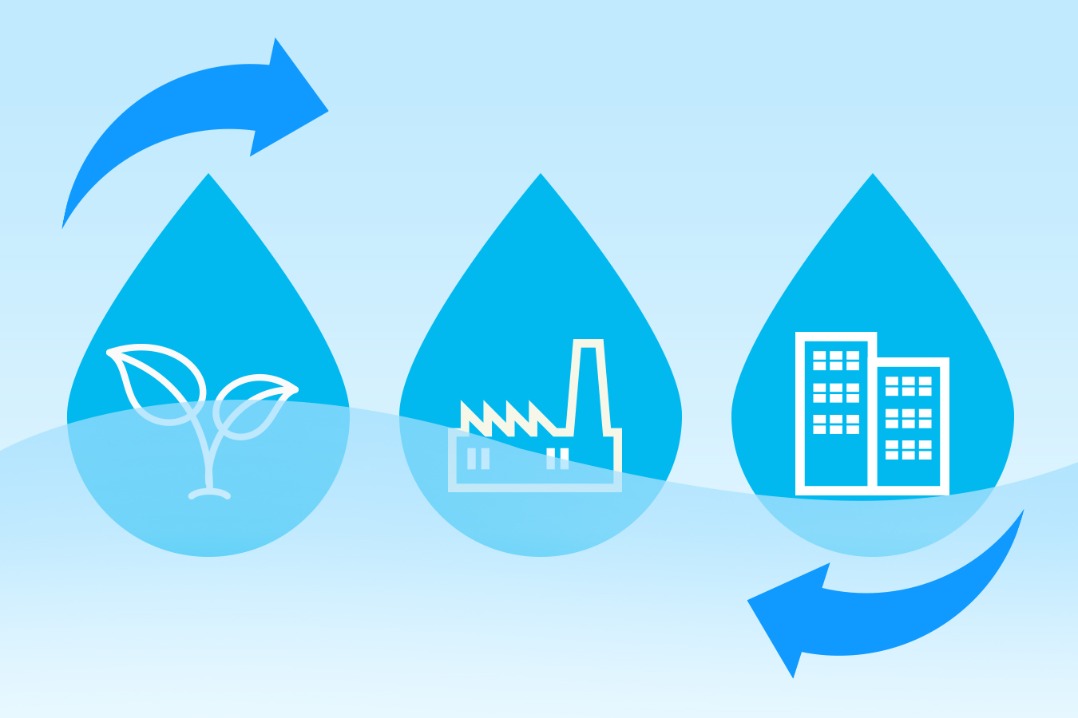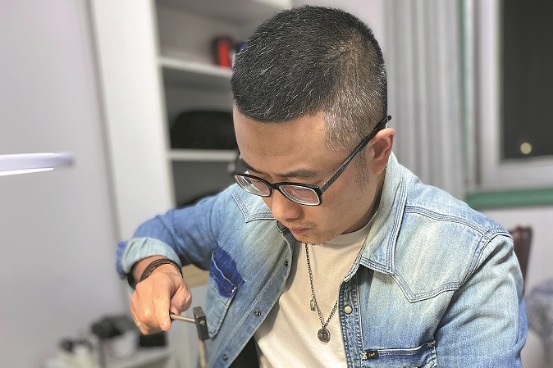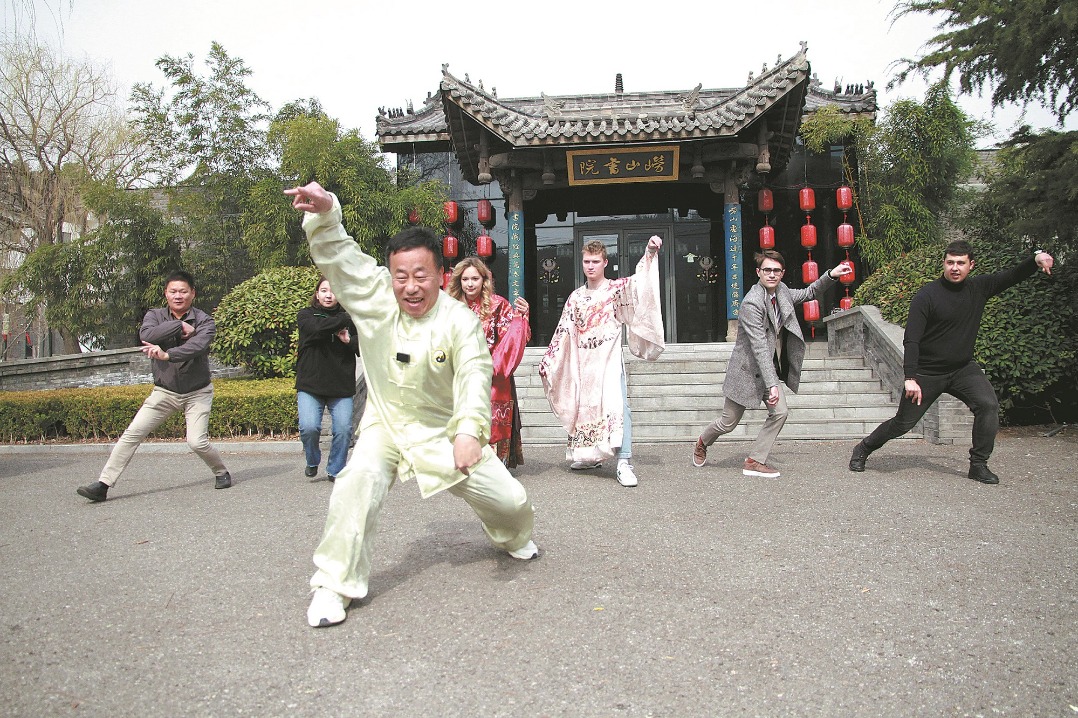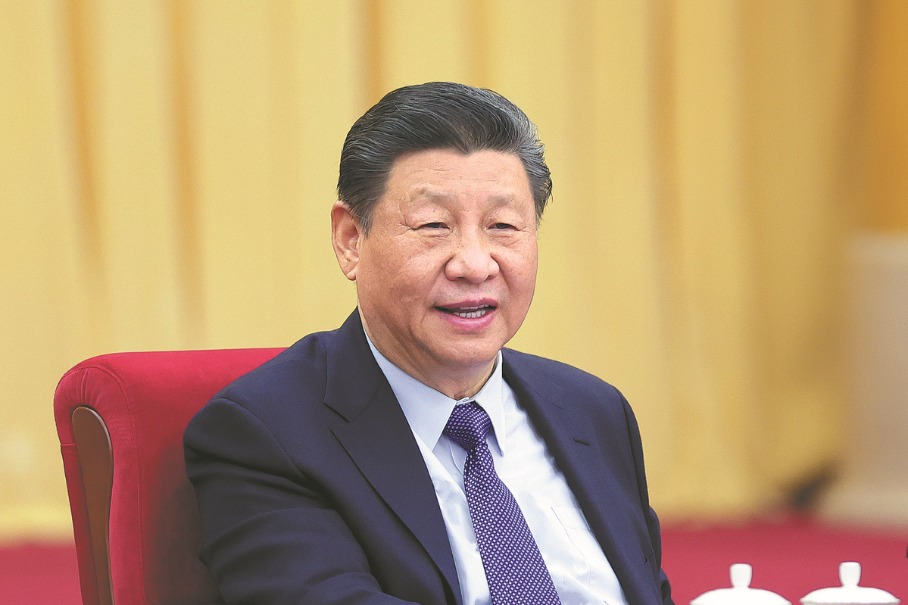Visit enhances relations with major UK city

Editor's Note: China Daily is publishing a series of stories reviewing President Xi Jinping's visits at home and abroad in the past decade, to showcase his vision for development in China and the world.
Trip to Manchester laboratory provided new opportunities benefiting both sides
A president, a prime minister and a top soccer player: the selfie of President Xi Jinping, then-British prime minister David Cameron and Manchester City striker Sergio Aguero became an instant internet hit in 2015, when Xi ended a state visit to the United Kingdom in Manchester.
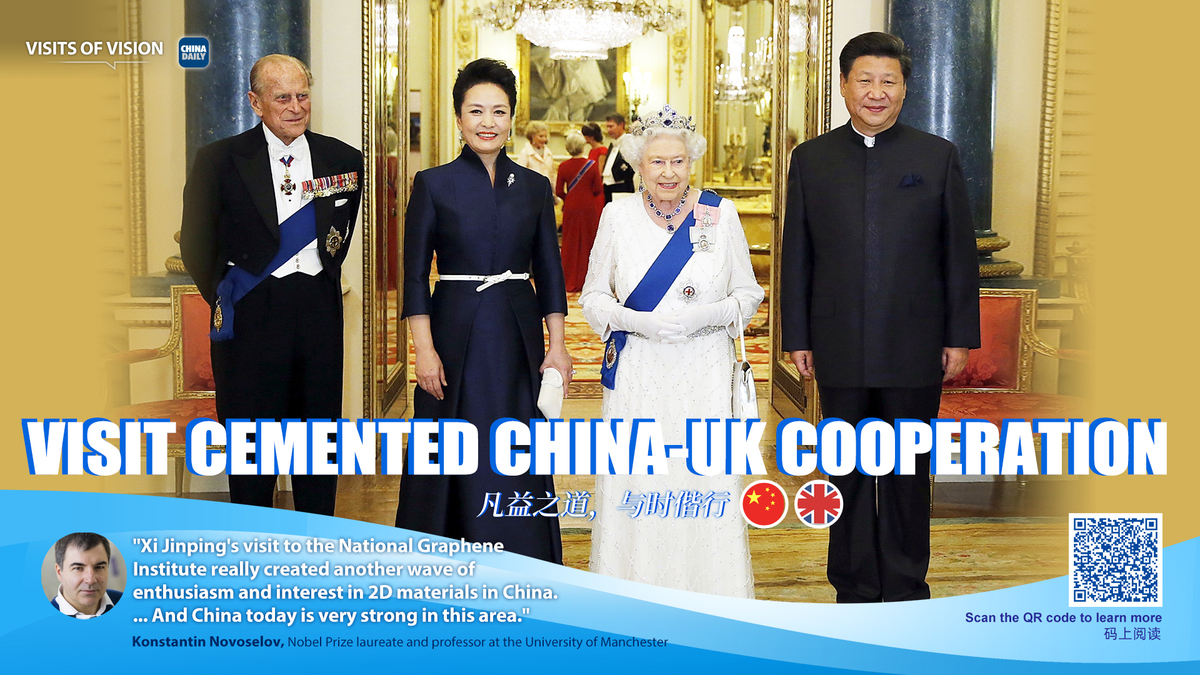
"That was really an iconic photo from the visit, which really showed the human and personal side of President Xi Jinping as well as being a strong global leader, also him as a human being enjoying a visit and meeting a footballer," said David Houliston, policy head of the Manchester City Council, who was involved in Xi's visit to Manchester as policy and partnership manager for the city.
Although Xi is known for his keen interest in soccer, that visit to Manchester far transcended the game.
In Manchester, bees, a city emblem, are everywhere to be seen. The hardworking insect evokes the city's history as the cradle of the Industrial Revolution, when it was chimneys, smoke and crowds of workers that were everywhere to be seen.
In recent decades the city became home to the world's first modern computer, and then graphene, hailed as a wonder material, appeared and Manchester became a center of the Cameron government's "Northern Powerhouse" initiative and of the current government's "Levelling Up" initiatives.
Xi's first stop was the National Graphene Institute at Manchester University, the brain of the city's modern scientific and technological revolution.
The institute researches graphene, the world's thinnest material. It is used mainly in the fields of energy and electronics and is now the focus of research looking for ways to reduce carbon emissions.
There, President Xi and his wife, Peng Liyuan, were given a tour around the laboratories led by Professor Konstantin Novoselov, one of two scientists who won the Nobel Prize in physics in 2010 for their work on graphene at the University of Manchester. Novoselov was also trained in Chinese traditional painting.
"Everyone was trying to ask and answer questions, making jokes, and the students were involved," Novoselov said.
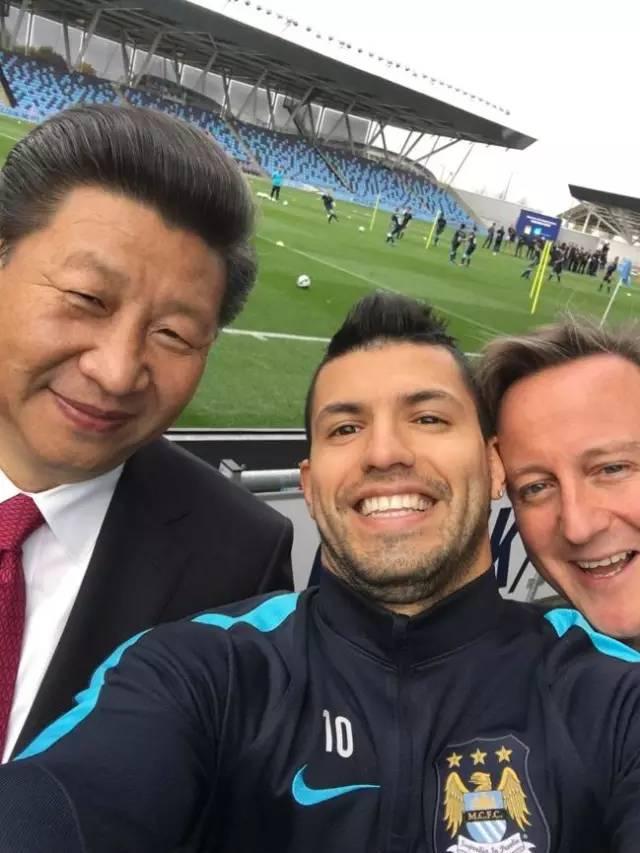
"It was quite a dynamic atmosphere, I would say. I gave President Xi one of my paintings. He was very surprised and gave me a set of marvelous paint brushes back as a present."
He recalled the special gift he prepared for Xi, a traditional Chinese ink painting of a lotus pond. In fact, graphene ink was used in that painting.
Nowadays, university staff members refer to the passage that Xi walked through to see the signature cleanroom laboratory as the "famous corridor" because it later attracted the personnel of so many Chinese scientific institutes. A photo of Xi at the institute hangs on the wall of the corridor.
"Xi Jinping's visit to the National Graphene Institute really created another wave of enthusiasm and interest in 2D materials in China," Novoselov said. "More researchers started to work on it, and more interesting work started to appear. And China today is very strong in this area."
Professor Luke Georghiou, deputy president and vice-chancellor of the university, also vividly recalled Xi's visit.
"He was knowledgeable. He was interested in what we were doing. I think he has a background himself in technology. So he understood very well what he was seeing."
Following the visit, the university's collaboration with Chinese institutes increased, said Georghiou, adding that global concerns such as health, environmental protection and sustainability have become a new focus of cooperation.
"It's important that the world leaders don't think the UK is only about London," he said. "So it was important for us."
On Xi's visit to the UK, Manchester was the only city apart from London that he went to, one reason being the city's post-industrial history, Georghiou said.
"We have managed to grow from older declining industries and found a new economic basis for the way we work with a very dynamic and regional approach. I believe there is some interest in China because you also have many industrial cities."
One example is Manchester's sister city relationship since 1986 with Wuhan, the capital of Hubei province. That city similarly transformed itself from an industrial powerhouse into a modern scientific and technological innovation center.
The two cities, having worked on trade, investment and education for decades, have found new common ground: hydrogen and sponge cities.
"We've learned from the Wuhan sponge cities program about how to use nature-based solutions to hold back floodwater," said Houliston, who has led Manchester's partnership with Wuhan for about seven years. "In Wuhan, that's about stopping flooding on the Yangtze River. In Manchester, we've done demonstrations learning from China's technology and investment."
In late April, the two cities signed a memorandum of understanding on hydrogen energy industry exchanges and collaboration, through which they will work together on the clean energy, with water as the only byproduct, for their net-zero targets.
Xi's visit triggered city partnerships between the two countries, Houliston said.
"We saw a real succession of visits from governors and vice-governors of different regions of China coming to visit Manchester to see what the president had seen himself."
In Manchester, many people on the city council, in universities and at companies have business cards that are in English and Chinese. Simple etiquette is one rationale for this, he said, but it also demonstrates the city's ties with China.
"We do that for all senior level people in our council, the mayor and the representatives."
At a welcoming banquet held by the municipal government of Manchester in 2015, Xi said he hoped Manchester would act as a pacesetter of China-UK relations, highlighting the city's links with China.
Over the past seven years, China-UK relations have had ups and downs, but the relationship between Manchester and Wuhan seems to be undisturbed.
"We've seen historically that there can be challenges around some of the international relationships," Houliston said. "And we've always felt that city-to-city dialogues and people-to-people dialogues can kind of shelter from those things a little bit.
"Even in the most difficult diplomatic era between the UK and China, we continued our work with Wuhan, and we're very proud that the city relations continued."
The Airport City Manchester project, one of the UK's largest joint venture commercial development projects worth one billion pounds, was also on Xi's itinerary. China's Beijing Construction Engineering Group International (BCEGI) is a joint venture and construction partner of the project.
With the Airport City project as a starting point, BCEGI has taken part in five major construction projects in the UK as a developer or contractor in Manchester and beyond, with a gross development value of about£3 billion. The latest completed phases of the Middlewood Locks project have provided about 6,000 jobs in the local community.
"Chinese enterprises have generated a great deal of interest and investment for Manchester and the wider region following President Xi's visit," said Yu Dongwen, the director of BCEGI. "It really brings confidence to Chinese companies with ambition on their global reach."
Charlie Cornish, chief executive officer of Manchester Airport, said its relationship with the Chinese company is "very positive".
"You're always concerned about the commitment of the other party or parties, the openness of the other party or parties. But we've found them to be open, transparent, (and) friendly. If they said they would deliver a project for a particular time, they did it."
Since Xi's visit, Manchester has had projects involving China worth about £6 billion, and every year more than 9,000 Chinese students in Manchester have contributed more than 1 billion pounds to the region's economy, Houliston said.
Rhys Whalley, executive director of the Manchester-China Forum, who calls himself an eternal optimist in terms of Manchester's relationship with China, said he believes in a promising future for bilateral ties. "One has to be," he said.
"I'm a proponent of the role the city and regions have to play in driving forward engagement. For too long that had been overlooked, particularly by national and multinational organizations. Cities and regions have a really important role to play, because ultimately that's where people come together."
Video: Han Jing
- Student carries physically challenged classmate to safety during earthquake
- Over 260m passenger trips made on first day of Qingming holiday
- An American principal's vision for Chinese language education
- China activates Level-IV emergency response to flooding
- Ancient tree stands tall near Yellow Emperor tomb
- China provides medical assistance to 250m in 2023
















